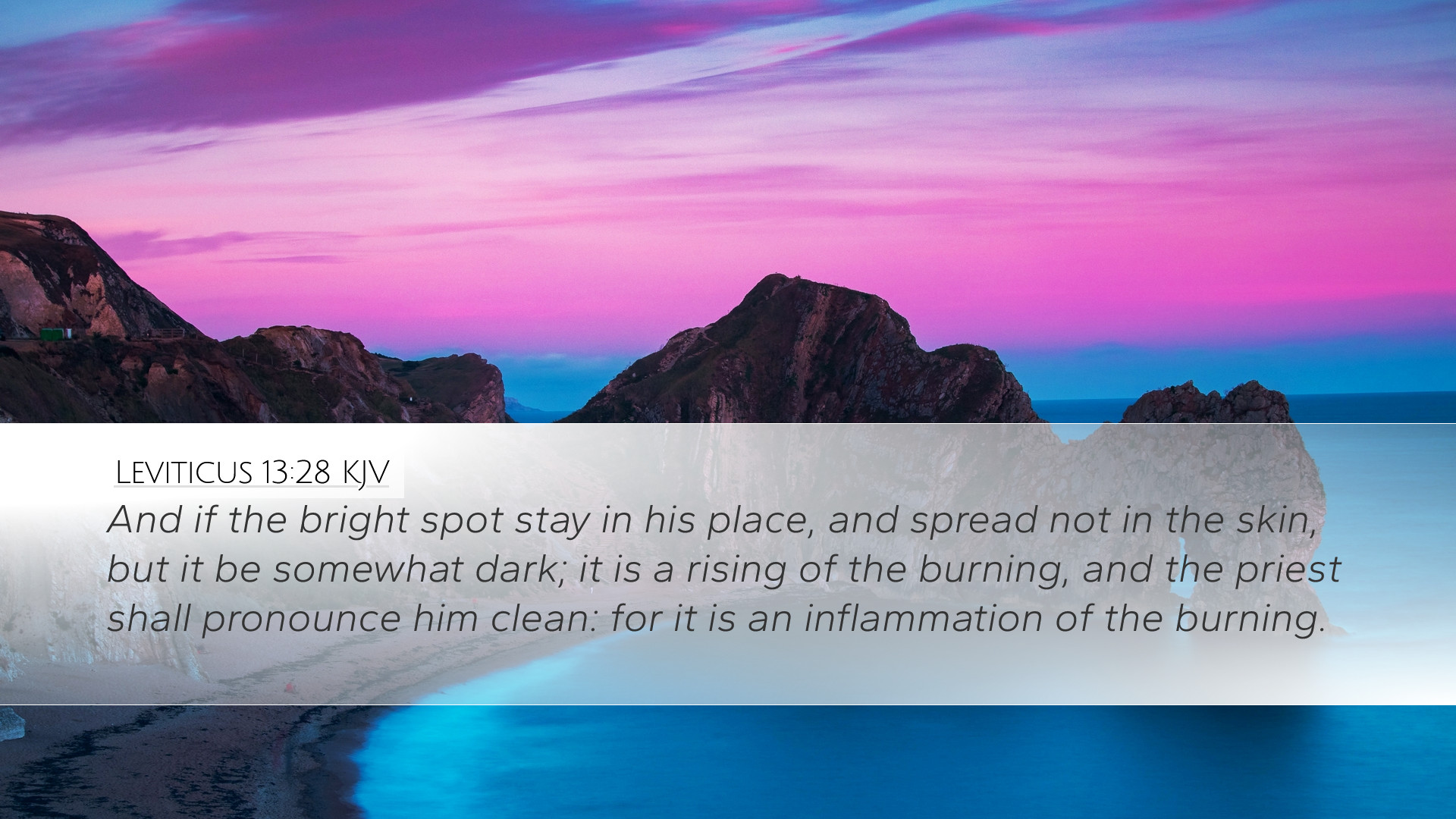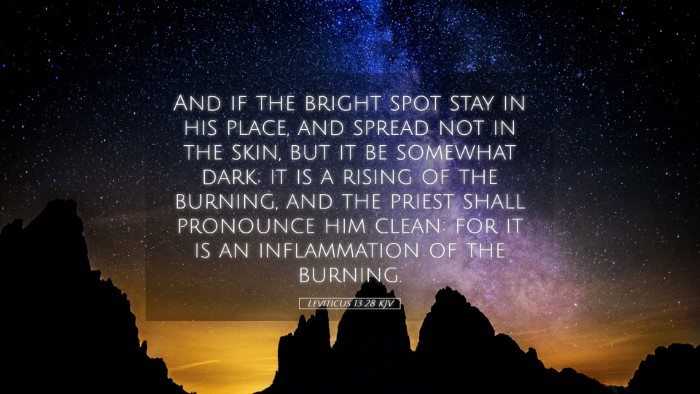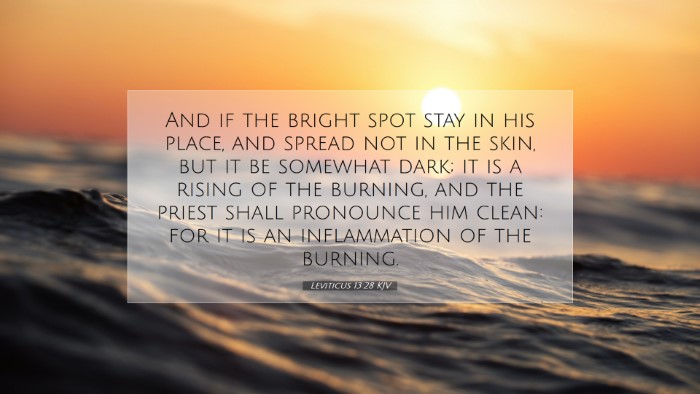Commentary on Leviticus 13:28
Leviticus 13:28 states:
"But if the bright spot remain in its place, and spread not, it is a burning boil; and the priest shall pronounce him clean."
Overview
This verse is situated within the broader context of laws regarding skin diseases and impurities. It reflects the meticulous nature of the Mosaic Law, which aimed to preserve both physical and spiritual health within the community of Israel. The distinctions drawn in cases of 'bright spots', 'burning boils', and the role of the priest underscore the theological and health-related concerns of the text.
Theological Significance
The stipulations found in Leviticus 13 are not merely medical; they have deep theological implications. The condition of the body is often linked to the state of the soul in biblical thought. Spiritual purity was paramount, and physical ailments could symbolize deeper moral or societal issues.
Matthew Henry's Commentary
Matthew Henry reflects on the nature of ceremonial laws. He emphasizes that the physical conditions described serve as a reminder of sin and its effects:
-
Ceremonial Purity: Henry comments on the importance of being clean before God, indicating that these laws were intended to keep the Israelites aware of their need for holiness.
-
Symbolism of the Disease: The bright spot and its characteristics mirror the different states of sin in life—some more benign and others more malignant.
Albert Barnes' Perspective
Albert Barnes focuses on the practical aspects of the law regarding skin disease:
-
Role of the Priest: Barnes notes that the priest acts as a mediator between God and the individual, emphasizing the community's need for leadership in spiritual matters.
-
Interpretation of Cleanliness: He interprets the bright spot as potentially benign, serving as an example of how God made provisions for His people’s well-being.
Adam Clarke's Insights
Adam Clarke provides a more detailed look at the terms used in the Hebrew text:
-
Hebrew Terms: He explains the significance of words such as "burning" and "boil," linking them to common practices and beliefs of the time regarding health and disease.
-
Lessons from Isolation: Clarke extrapolates on isolation’s role in these laws, relating it to a form of spiritual reflection and communal responsibility.
Practical Applications
-
Awareness of Spiritual Health: Just as the Israelites had to be attentive to signs of physical skin diseases, modern believers are called to be cognizant of the spiritual ailments in their lives.
-
The Role of Community: In applying this to life today, congregations must promote accountability and support, much like the priesthood acted in ancient Israel.
-
Encouragement to Seek Purification: This passage invites believers to actively seek purity, knowing that while God is merciful, He also calls for holiness and dedication.
Conclusion
Leviticus 13:28, while seemingly straightforward, offers rich theological reflection on the nature of sin and the necessity for spiritual purification. It illustrates the comprehensive care God provides through His laws, intertwining physical health with the broader spiritual condition of His people. The insights from Matthew Henry, Albert Barnes, and Adam Clarke enrich our understanding and encourage us to pursue both physical and spiritual well-being with diligence and faith.


